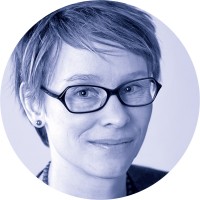Disabled people have a right to shape their own lives. They don’t get the opportunity to do that in Norway.

Photo: Einar Nilsen
It was a normal day at work. Researcher Bergljot Gjelsvik was heading to a meeting at the University of Oxford when she fell down a flight of stairs and into ‘a different world’ (1). The NRK documentary ‘Fallet’, broadcast on Norwegian television, showed us how the healthy 42-year-old psychologist had suddenly become a patient with a neck injury, wheelchair-bound and dependent on the help of others.
Approximately 15 % of the world’s population are living with a disability (2). According to the World Health Organisation (WHO), this makes them the world’s largest minority group. People with a disability encounter discrimination more often than others and find that it is difficult to participate in various social arenas, such as the world of work.
In 2006, the UN passed the Convention on the Rights of Persons with Disabilities (2). The main objective of the convention is to ensure that disabled people have access to the same human rights as everybody else. Norway signed the convention in 2007 and ratified it in 2013. This means that the Norwegian state is obliged to comply with its content. Norway has also enacted anti-discrimination and accessibility legislation which is intended to secure equal opportunities and the right to participate in community life for all, irrespective of their abilities, and to prevent discrimination in education, employment and other areas of society.
The television programme that featured Bergljot Gjelsvik showed us that she was forced to live in an institution for the elderly while waiting for her own home to be adapted so she could live there (1). When she applied to her local authority for user-controlled personal assistance to enable her to go back to work, among other things, the hours she was allocated were insufficient to allow her to do so.
It is up to the local authorities to assess whether the applicants’ wishes and needs fall within the parameters for such services.
User-controlled personal assistance (BPA in Norwegian) means that people with a disability are allocated a personal assistant who provides support in their day-to-day life (3). This is different to community nursing in that the service user recruits the assistant and decides what tasks should be carried out by one or a handful of people. The government recently set up an official committee that was tasked with proposing improvements to this scheme (4). This is a welcome initiative. For although the right to user-controlled personal assistance was made a statutory entitlement in 2015, there are still great differences between local authorities in what they offer. Many feel that the scheme is not working as intended (3). Service users talk of local authorities that control how the allocated hours of assistance are being used, consider disability to be a disease, and focus their provision on nursing and care requirements.
At a hearing in Geneva in March, Norway was heavily criticised by the UN for neglecting the human rights of disabled people (5). It is food for thought that on the same day, the Norwegian parliament voted down a proposal to incorporate the UN Convention into the Norwegian human rights act.
The way that user-controlled assistance is anchored in the legislation means that the scheme, in practice, is placed on an equal footing with other care services. Consequently, it is up to the local authorities to assess whether the applicants’ wishes and needs fall within the parameters for such services. Uloba, the organisation working to secure equal rights for people with disabilities, and who commissioned the report on lessons learnt from user-controlled personal assistance, believes that the scheme should be moved out of the health and care sector (3). They have won support from the gender equality and anti-discrimination ombudsman, Hanne Bjurstrøm, among others (6). This is an important point for discussion. Similarly, the scheme should also cover areas such as schools, the workplace and leisure activities, and should be available beyond the age of 67, which is currently the upper age limit. This expansion would be in line with the government’s strategy document, ‘A society for all’, which seeks to secure equal opportunities for disabled people, and where the focus areas include education, the workplace, health and care services as well as culture and leisure activities (7).
The ‘Fallet’ documentary put a spotlight on the situation of thousands of people in Norway (1) who, due to attitudes and social barriers, are denied the opportunity to live their lives as they want. The Disability Pride Parade is an annual event under the motto of ‘proud, strong and visible’ (8). The parade is important, but it should not be needed. For all people, irrespective of whether their arms and legs or other body parts function, have their place in society and are needed in the community. Freedom and the right to live fulfilling and meaningful lives must be available to all citizens. If the user-controlled assistance scheme is expanded in the coming action plan which is meant to follow up the government’s strategy, it will hopefully take us closer to true equality for people with disabilities.